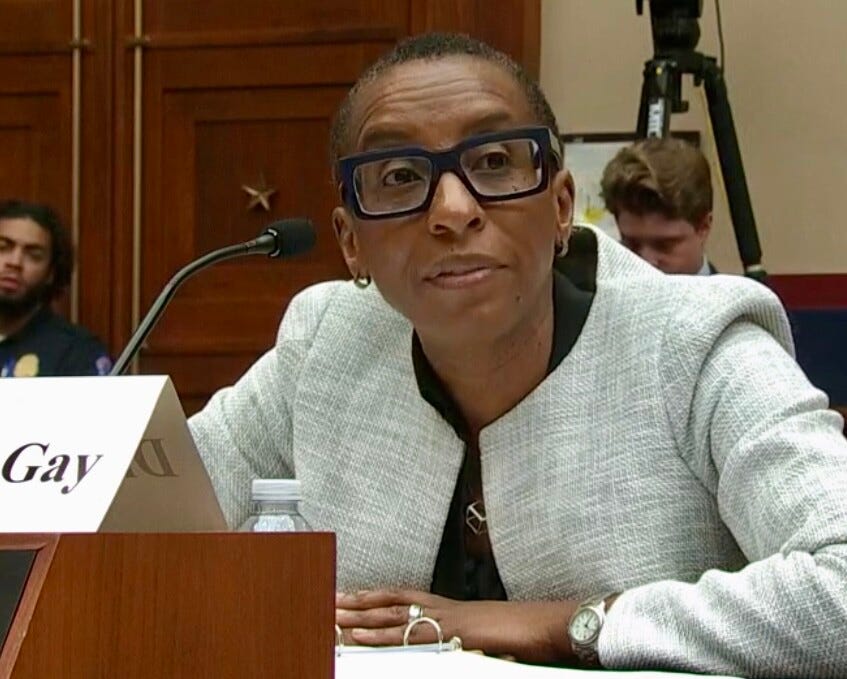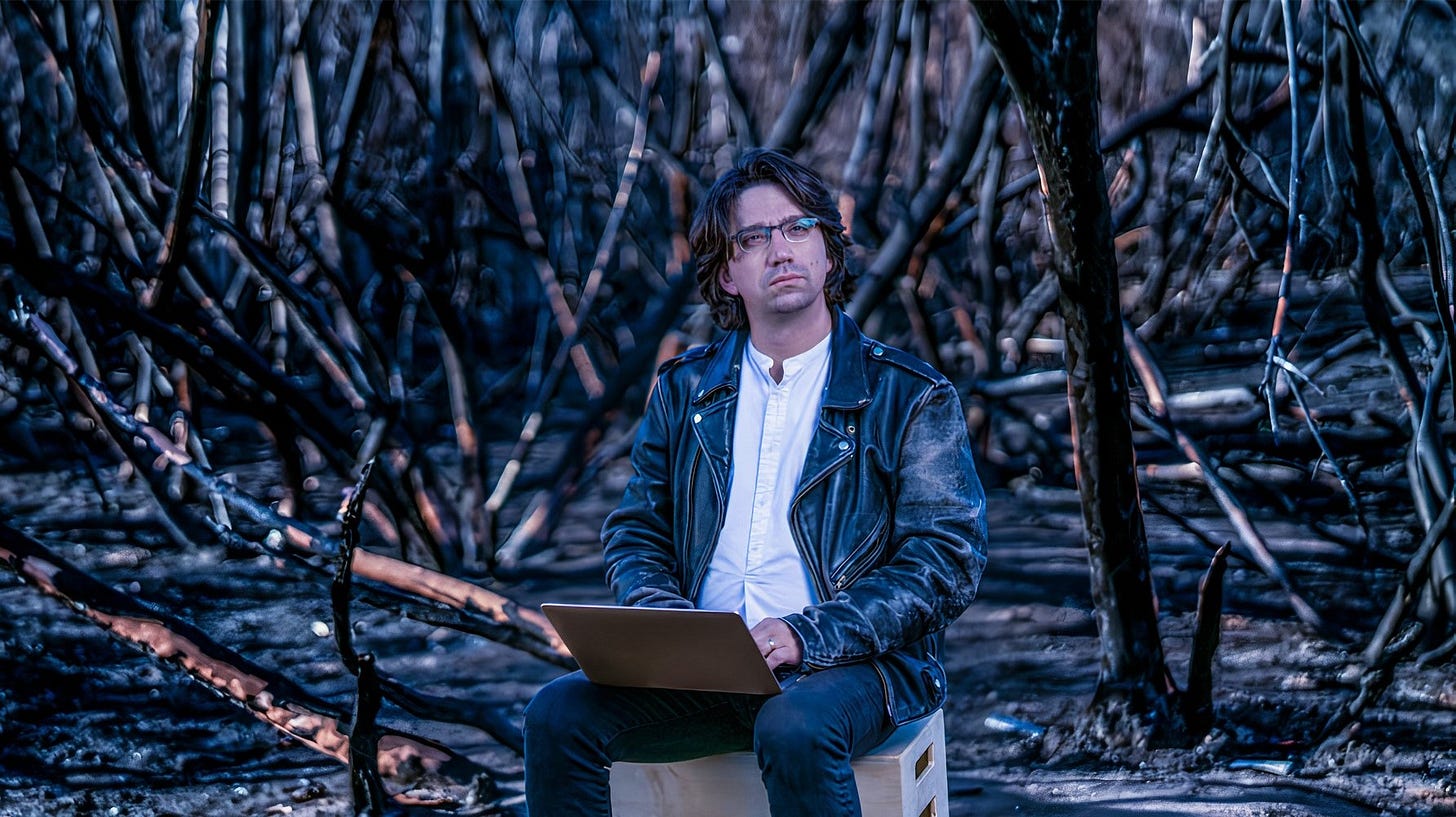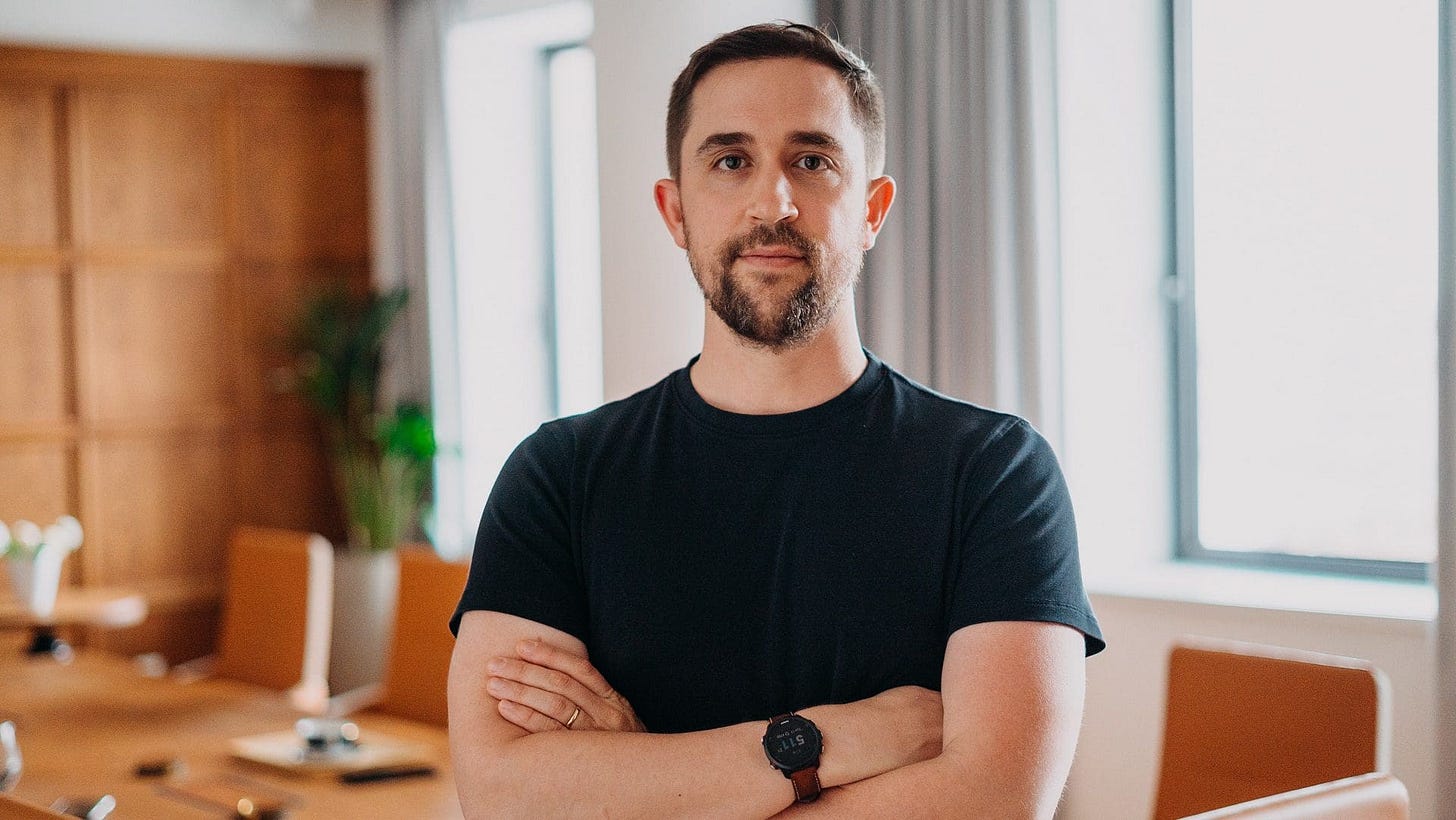The Right Divided: Rufo vs Yarvin
What can we learn from this increasingly heated back and forth
Christopher Rufo is enjoying a victory lap – understandably so. After he brought Claudine Gay’s plagiarism to light, she resigned as president of Harvard. That’s a considerable win from his perspective. However, Gay’s resignation doesn’t change much of anything unless it paves the way for the dismantling of DEI and other leftist policies at Harvard. Rufo seems to agree. (And it should be stated that it was ultimately Gay’s unwillingness to curb real or perceived anti-Semitism on campus that led to her resignation.)
Gay’s resignation prompted Rufo to outline his strategic vision for the right – one of his favorite pastimes – in an article for IM—1776 titled “The New Right Activism.” The piece offers us a look inside the mind of American conservatism’s most prominent activist. “The Right doesn’t need a white paper,” writes Rufo. “What it needs is a spirited new activism with the courage and resolve to win back the language, recapture institutions, and reorient the state toward rightful ends.”

Many on the right praised Rufo’s tactics. Curtis Yarvin was not among them. He wrote an incredibly critical – and at times insulting – response to Rufo’s piece titled “Heroin liberals and cocaine conservatives.”
The crux of Yarvin’s article is that, speaking metaphorically, liberals sell the masses heroin and conservatives sell them cocaine. He writes that “the blue pill of liberalism…allows you to ignore the world rotting around you.” Sounds about right. On the other hand, the cocaine peddled by conservatives comes in the form of “one-off media-cycle hits,” which Yarvin argues are good for fundraising and making conservatives feel like they’re winning, but little else.
Yarvin believes Rufo is guilty of selling cocaine. Not literal cocaine. But the Claudine Gay thing, in Yarvin’s view, energized the right without actually accomplishing anything. In fact, Yarvin would prefer someone as comically unqualified as Claudine Gay to run Harvard. Delegitimizing these institutions, after all, is a necessary prerequisite for their replacement.
This isn’t the first time Yarvin has criticized Rufo. I’m actually not sure when that was, but in February of last year he devoted nearly an entire podcast episode to such a critique. A few days later, Yarvin published a lengthy article along the same lines, to which Rufo responded first with a short Twitter thread and later with a lengthier Substack post.
That exchange was civil. It has been less so this time around. In Yarvin’s latest, he repeatedly impugns Rufo’s graduate degree from Harvard Extension School – you know, not the real Harvard. “A servant has just informed me of this regrettable new wrinkle in Mr. Rufo’s resume,” writes Yarvin. It seems Rufo isn’t invited to the dark elf barbeque.
The embattled activist returned fire on Twitter. “I have never managed to read an entire Yarvin essay, given his insufferable prose,” Rufo writes, “but his writing betrays a deep, unmanly kink for losing. He’s the guy at the sex club getting spanked and abused and then explaining why is, in fact, the supreme prince.”
Quite the response! But hey, Yarvin started it.
Personal jabs aside, I find the ongoing back and forth between Yarvin and Rufo worth following because both men are primarily concerned with strategy: Yarvin as a theorist, Rufo as a theorist and an activist. Their disagreements are therefore unlike those we typically see in the dissident right, which usually center around ideological purity spiraling or autistic historical minutiae. “How do we win?” is an infinitely more important question than “Were the Ghibellines based?” or “Are monarchies better than republics?” But far be it from me to belittle such patrician discussions…
Let’s take a look at the big picture differences between these two.
Yarvin’s primary interest is regime change: the replacement of our current government and other power centers. As a result, he has a longer time horizon and is less interested in chasing short term wins. Yarvin considers many of these perceived wins to not only be ineffective but counterproductive. If a particular strategy only unifies elites and prompts the establishment to crackdown on the right, then in Yarvin’s view it is a foolish one. As he sees it, since the regime is far more powerful than us, poking it in the eye is inadvisable.
Yarvin is absolutely right to bring these dynamics to light. Like it or not, the right is addicted to political cocaine: “own the libs” style media hits which accomplish next to nothing – other than a quick, exhilarating high. And the regime is stronger than us, so we shouldn’t recklessly antagonize it. Remind me how Charlottesville played out again?
The potential for error, as I see it, arises in the application of Yarvin’s theories. I can see how someone could read his work and conclude that we should take no action that pisses off the establishment. That would be taking it a bit far. Moreover, I can see how someone could skim Yarvin’s work and conclude that he would advise us to do nothing. That would definitely be taking it too far.
Yarvin, to be clear, doesn’t believe in doing nothing. He advises us to network and continue telling the truth. And when it comes to conventional (actual) politics, Yarvin’s preferred outcome is a decapitation strike, or one-move regime change. Short of that, he supports strategies which weaken the establishment and thus facilitate regime change down the line. Dismantling the federal bureaucracy and limiting judicial review both fit the bill, because while they do not constitute regime change on their own, they pave the way to such an end.
In light of the above, it is inaccurate to characterize Yarvin as addicted to losing or averse to action. Even if we disagree with Yarvin’s prescriptions, he has clearly devoted considerable time to figuring out a solution to our problems, and his ideas warrant engagement.
But what about Chris Rufo?
Rufo, being both theorist and activist, is naturally more concerned with short term objectives than Yarvin. But this isn’t to say that he lacks long term goals. Rufo believes that moves like ousting Claudine Gay and taking over New College Florida – both of which Yarvin publicly countersignaled – have the potential to lead to even greater victories.
In his response to Yarvin, Rufo outlines why the significance of his New College takeover:
“Our initial campaign at New College has already had a ripple effect: multiple states, including Florida, have introduced legislation to abolish DEI bureaucracies at all public universities, and the higher education establishment has expressed fear that a conservative counter-revolution has begun. At a minimum, we have proven that the political commissars are not inevitable, not invincible, and not untouchable.”
Rufo has a point about small wins galvanizing the right. One can easily see how a nationwide, grassroots anti-DEI movement could eventually result in anti-DEI wins at the federal level – which Yarvin is already on record supporting. At the end of the day, the right needs to believe that it can win to counter the feeling of powerlessness which paralyzes us. The challenge is to break this paralysis in intelligent ways, i.e. in ways that don’t entail pointless edgelording or retarded political rallies.
In summary, it appears that incrementalism is the source of much of the disagreement between Chris Rufo and Curtis Yarvin. The former believes small wins can lead to bigger wins, whereas the latter is apprehensive about the potential for most small wins pursued and achieved by conservatives to lead to bigger wins.





